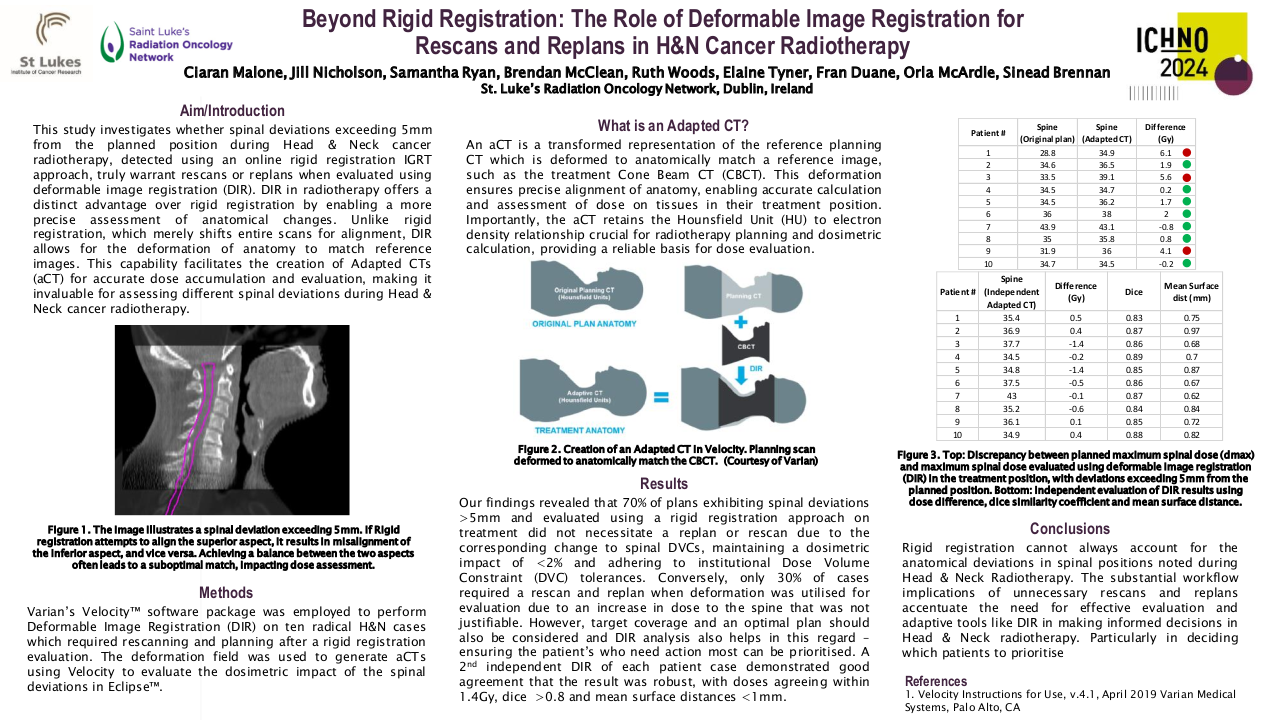neoadjuvant chemotherapy followed by concurrent chemoradiotherapy for locoregionally advanced nasopharyngeal carcinoma: real world data from the national institute of oncology, Morocco
Purpose/Objective
Treatment of nasopharyngeal cancer is based on radiotherapy associated to chemotherapy.
The standard for patients with locoregionally advanced carcinoma is induction chemotherapy associated to concurrent chemoradiotherapy.
The aim of our study is to determine the recurrence free survival and overall survival.
Material/Methods
Our study focused on non metastatic patients with locoregionally advanced nasopharyngeal carcinoma: T3-T4 with positive nodes.
Treated by induction chemotherapy and concurrent chemoradiotherapy between 2018 and 2021.
For the induction chemotherapy, patients received cisplatin associated to gemcitabine for three cycles.
In concurrent chemoradiotherapy, total dose was 69,96-70 Gray in 33-35 fractions 5 days a week using Volumetric Modulated Arc Therapy (VMAT) plus cisplatin weekly at a dose of 40 mg per square meter of body surface.
Treatment, side effects, loco-regional and distant control and overall survival were collected.
Results
A total of 153 patients were included in the study, patients with metastatic disease were excluded.
We had 61,4% of men vs 38,6% of women with a median age of 49 years old.
13,7% of patients had arterial hypertension or diabetes.
A total of 83,1% of the patients received three cycles of induction chemotherapy.
81,6% received the full dose of radiotherapy, the others interrupted the treatment for side effects.
52,3% of the patients received seven cycles of concurrent chemotherapy.
Side effects were reported in 41,8% of the patients with a higher incidence of neutropenia, anemia, nausea-vomiting, renal toxicity and mucositis.
Grade 3 or 4 toxic side effects were reported in 19,6% of the patients.
At a median follow-up of 44 months, the 2-year recurrence-free survival was 73,2%.
Overall survival at 2 years was 89.4%.
Conclusion
The results of our study are similar to literature’s results; the induction chemotherapy followed by concurrent chemoradiotherapy in the locoregionally advanced nasopharyngeal carcinoma promotes distant control and increases overall survival.
Sides effects are unavoidable so they must be recognized and treated early to avoid grade 3 and 4.






